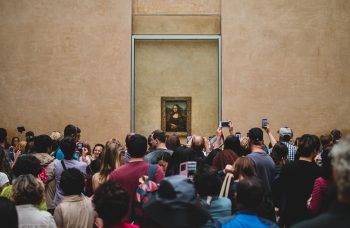As part of a €3.1 million plan, London’s British Museum is participating in a massive transformation and renovation of the Egyptian Museum in Tahrir Square in Cairo. The ambitious overhaul will focus on areas like collection management, communications, and engagement.
The project has been dubbed Transforming the Egyptian Museum of Cairo and has received backing from organizations like the Museo Egizio (Turin), the Louvre (Paris), the Ägyptisches Museum und Papyrussammlung (Berlin) and the Rijksmuseum van Oudheden (Leiden). The European Union is funding the entire project, which could become precarious as the UK is expected to leave the EU on March 29th as part of their Brexit proceedings. However, according to a British Museum spokeswoman the museum ‘would certainly hope to continue to participate in joint initiatives post Brexit; the majority of the work on this project will take place post 29 March. The museum works in collaboration with museums in Europe and across the world, and will continue to do so.’
According to a project statement for the ongoing work in Cairo, ‘British Museum conservation experts will assess the preservation of organic artefacts currently displayed in the lower galleries and provide training to conserve important painted tomb fragments.’ In addition to this, the British Museum will offer curatorial advice for galleries focused on the late period and Ptolemaic galleries of the Egyptian Museum. The British Museum also plans to assist with audience engagement to create a better accessible environment for museum-goers.
The Rosetta Stone, however, will most likely not make the journey to Cairo. The 2,000-year-old artefact is by far one of the British Museum’s most important exhibits, which has provided researchers and scientists with invaluable insight of ancient societies. Dating to around 196BC, the stone, which includes hieroglyphic, demotic, and Greed, was discovered in 1799 by Napoleon’s army. However, a British Museum spokesperson says there are no current requests for the return of the Rosetta Stone and Cairo and London officials continue to uphold that the stone will stay firmly on the ground in England. The spokeswoman for the British Museum added that the Egyptian Museum will focus on new exhibits highlighting artefacts from their extensive stores of Egyptian antiquities.
Tarek Tawfik, director of the Grand Egyptian Museum expected to open in 2020 near the Pyramids of Giza reaffirmed these sentiments. Tawfik told the Evening Standard Newspaper ‘No official request has been made, or is being made, to seek the return of the Rosetta Stone. The repatriation of objects is not a priority for the Grand Egyptian Museum because of the sheer number of artefacts—more than 100,000—we will have on display when it opens in 2020.’ Though Tawfik did say having the Rosetta Stone back home in Egypt would be ‘great’ that would be something that would ‘still need a lot of discussion and co-operation.’





